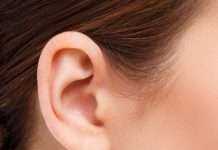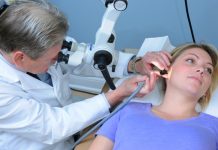Currently, 20 million Americans suffer from thyroid disease — 80 percent or 16 million of those are women. This small gland located in the neck typically goes unnoticed until something goes wrong. The thyroid plays an essential role in the regulation of several organs including the heart, liver, brain, kidneys and skin and impacts the immune system.
The ill effects of thyroid disorders can usually be mitigated by proper medication, so if you are diagnosed with a thyroid disorder consult your physician for suggestions to buy thyroid medication on a budget as out-of-pocket costs can quickly skyrocket when treating a medical condition. Knowing if you have thyroid disease is the first step to receiving treatment, so what are some of the signs women can look for and what can be done to get things back into balance?
Hyperthyroidism
Hyperthyroidism, which is an overactive thyroid where the body’s metabolic rate increases, occurs when the thyroid produces more thyroid hormones than the body needs. The most common cause is Graves’ disease, an autoimmune disease in which the body’s immune system stimulates the thyroid, causing it to make too much of the hormone.
However, hyperthyroidism can also be caused by thyroid nodules, which prompt excessive hormone production. Signs of this form of disease can include nervousness or irritability, weight loss, fast or irregular heart rate, insomnia, and increased perspiration. Those with hyperthyroidism may also suffer from osteoporosis, particularly in postmenopausal women.
Hypothyroidism
Hypothyroidism, which is an under active thyroid where the body’s metabolic rate slows, occurs when the thyroid does not make enough thyroid hormones. In the United States, the most common cause is Hashimoto’s disease, an autoimmune disease in which a person’s immune system mistakenly attacks the thyroid.
However, it can also be caused by the incorrect treatment of hyperthyroidism, radiation treatments of certain cancers or removal of the thyroid. Signs indicating hypothyroidism include fatigue, menstrual cycle irregularities, depression, weight gain, and hair thinning or hair loss.
Thyroid Nodules
Thyroid nodules, in which the gland’s tissue can overgrow and result in a nodule or lump in the gland, can be solid or filled with blood or another fluid. The nodules in and of themselves do not cause symptoms; however, they can produce excessive thyroid hormone resulting in hyperthyroidism. They can also become large enough to cause difficulty in swallowing.
Less than one in 10 nodules is cancerous; however, by the time a person reaches 50, they have a 50 percent chance of having a nodule larger than a half-inch wide. You can perform self-checks for nodules by standing in front of the mirror and raising your chin slightly.
Look for a bump on either side or your windpipe below the Adam’s apple. If the bump moves up and down when swallowing, it may be a nodule. However, always be sure to consult with your physician.
Thyroid Disorder Dangers
If any of these forms of thyroid disease are left untreated, they can wreak havoc on the body and make a person more prone to heart disease, infertility and osteoporosis. Studies have also shown there is a possible genetic tie between thyroid disorders and other autoimmune conditions such as diabetes, lupus and certain forms of arthritis.
Thyroid Disorders and Pregnancy
Women should also be aware pregnancy can have a direct impact on the function of their thyroid. In the United States, about 1 in 50 women is diagnosed with hypothyroidism during pregnancy. When this occurs, the woman’s immune system becomes suppressed due to the gland’s altered state of function.
For most women, their thyroid and immune systems regain normal functioning following pregnancy. However for some women, after pregnancy their thyroid fails to work properly resulting in “postpartum thyroiditis.”
This condition causes the body to produce antibodies that can damage the thyroid tissue due to a heightened immune response following pregnancy. While this condition resolves itself in many women, be sure to consult your physician for proper care and guidance.
Thyroid Disorders and Other Health Conditions
Because symptoms of thyroid disorders can be linked to other health problems, if you show signs of thyroid disorder be sure to see your physician for a proper diagnosis. This will likely include telling your medical history and receiving a physical exam.
Based on your symptoms, your appointment could also include blood tests, radioactive iodine uptake tests, a thyroid scan, a thyroid fine needle biopsy or a thyroid ultrasound. Upon making a diagnosis, the physician will then determine a treatment plan, which could include watchful waiting, in-office treatments, medication or surgery.














